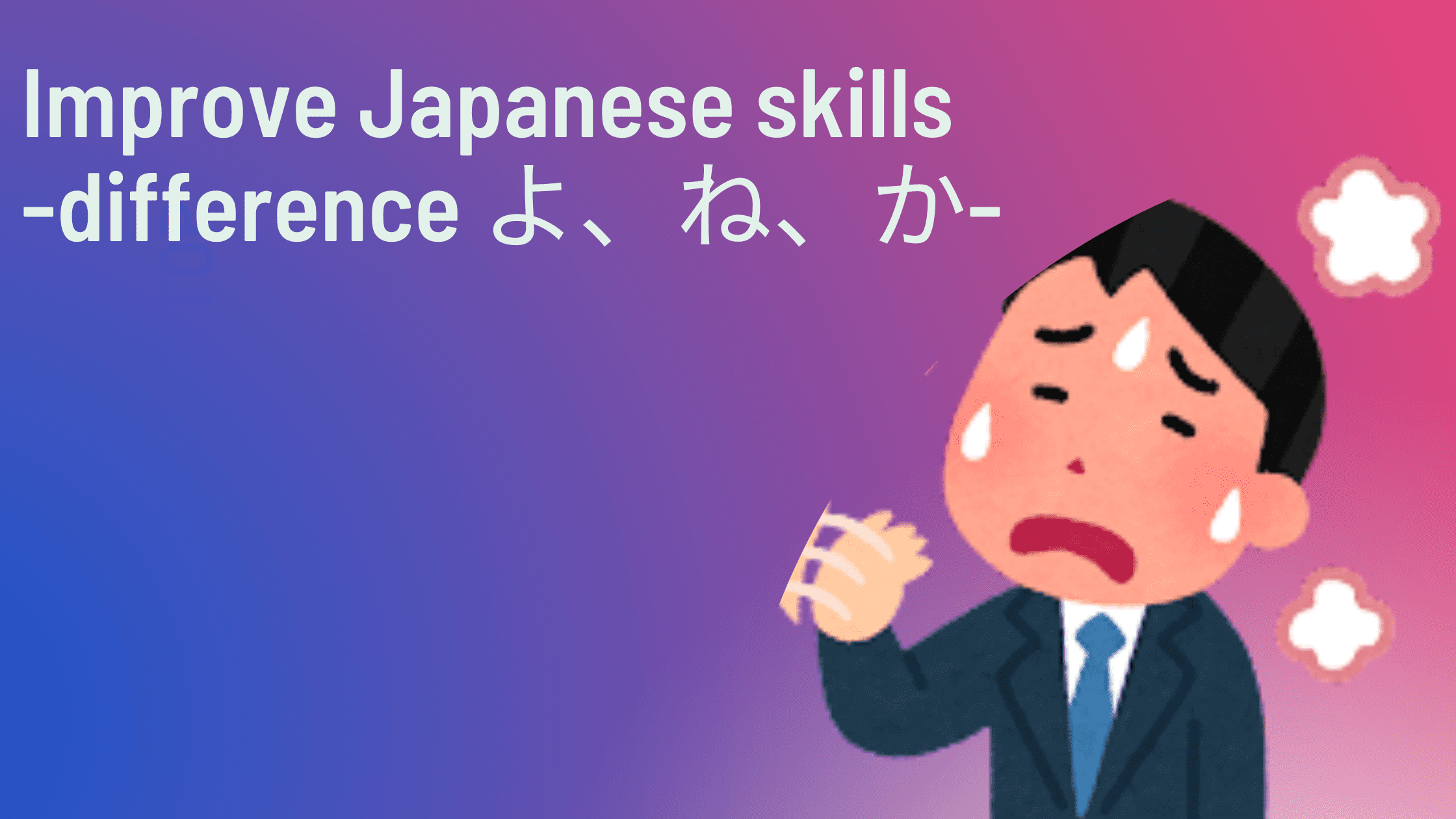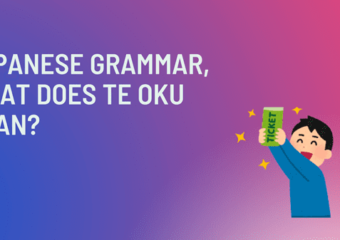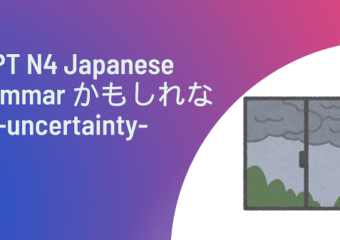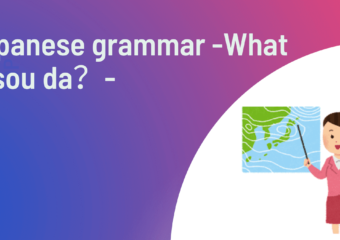You may have heard “ですよ”, “ですね”, “ですか” or “ですよね”.
よ, ね and か are called sentence ending particles (しゅうじょし), but what’s the difference among them?
In this article, I will teach you the differences with examples.
I’ve been teaching Japanese to beginners for three years, so you will understand the differences when you finish reading this article.
*Are you looking for a place to practice Japanese?
Youtonihongo is for you.
You may receive one free 30-minute trial lesson.

The free trial class online
We offer online classes and in person classes
Particle か
| Who does know about it? | Speaker | listener |
| か | × | 〇 |
As you know, か is used for question sentences.
It is usually connected using polite form.
Japanese
トイレはどこですか。
English
Where is the washroom?
We don’t use か in plain form.
Instead, we use a rising intonation on the final word.
Please read this article for more information.
Let’s learn Japanese plain form.
In conclusion, when a speaker doesn’t know the answer, the speaker would ask a question using か.
Particle ね
| Who does know about it? | Speaker | listener |
| ね | 〇 | 〇 |
We use ね when we want to check if something is true with another person.
Let’s see two examples.
Same opinion, sympathy
Japanese
きょうはあついね。
English
It’s so hot today, right?
Confirmation
Japanese
きょうのかいぎは10じからですね。
English
Today’s meeting will start at 10, right?
Like these cases, we use ね to confirm or to know if we have the same opinion.
Particle よ
| Who does know about it? | Speaker | listener |
| よ | 〇 | × |
We use よ when we tell a person something we know, but they do not.
Let’s see an example.
Japanese
きょうのかいぎは10じからですか。
いいえ、11じからですよ。
English
Will today’s meeting start at 10?
No, it’s going to start at 11.
Like this case, when we teach something that the person doesn’t know, we use よ.
Therefore, there is a possibility that the person may feel that you look down them, so please be careful when you talk with an older person or higher ranking person when using よ.
Particle よね
We use よね when we think the person will agree, but we are not sure.
Japanese
きょうはかいぎですよね。
English
We have meeting today, right?
In this case, the speaker thinks there is meeting today, but they aren’t 100% sure.
Conclusion
| Who does know about it? | Speaker | listener |
| か | × | 〇 |
| ね | 〇 | 〇 |
| よ | 〇 | × |
When a speaker doesn’t know the answer and they want to know it, they will add か at the end of the sentence.
If both the speaker and listener know the information, the speaker will add ね at the end of the sentence to confirm.
When a speaker knows the information, but a listener doesn’t, the speaker will add よ at the end of the sentence.
If the speaker is not sure if they are correct, they will add よね at the end of the sentence.
Practice
1. Q. きょうは とても いい天気です( )。
A. ほんとうですね。
2. Q. かいぎは2じからですか。
A. 4じからです( )。
3. Q. ことしで20さいだった( )。
A. うん、そうだよ。
4. Q. きょう、パーティーにいきます( )。
A. はい、いきます。
Answer
1. Q.きょうは とても いい天気です(ね)。
A. ほんとうですね。
2. Q. かいぎは2じからですか。
A. いいえ、4じからです(よ)。
3. Q. ことしで20さいだった(よね)。
A. うん、そうだよ。
4. Q. きょう、パーティーにいきます(か)。
A. はい、いきます。
If you have any questions about this exercise, please contact me or leave a comment below.
If you’d like to learn more Japanese, please feel free to contact me.
I teach Japanese in-person or online.
You can also learn Japanese on my Instagram page.

The free trial class online
We offer online classes and in person classes



